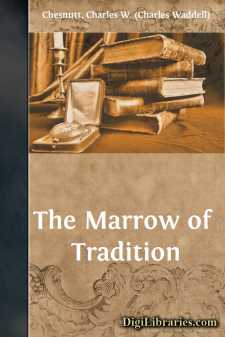Categories
- Antiques & Collectibles 13
- Architecture 36
- Art 48
- Bibles 22
- Biography & Autobiography 813
- Body, Mind & Spirit 142
- Business & Economics 28
- Children's Books 17
- Children's Fiction 14
- Computers 4
- Cooking 94
- Crafts & Hobbies 4
- Drama 346
- Education 46
- Family & Relationships 57
- Fiction 11829
- Games 19
- Gardening 17
- Health & Fitness 34
- History 1377
- House & Home 1
- Humor 147
- Juvenile Fiction 1873
- Juvenile Nonfiction 202
- Language Arts & Disciplines 88
- Law 16
- Literary Collections 686
- Literary Criticism 179
- Mathematics 13
- Medical 41
- Music 40
- Nature 179
- Non-Classifiable 1768
- Performing Arts 7
- Periodicals 1453
- Philosophy 64
- Photography 2
- Poetry 896
- Political Science 203
- Psychology 42
- Reference 154
- Religion 513
- Science 126
- Self-Help 84
- Social Science 81
- Sports & Recreation 34
- Study Aids 3
- Technology & Engineering 59
- Transportation 23
- Travel 463
- True Crime 29
Charles W. (Charles Waddell) Chesnutt
Charles Waddell Chesnutt (1858–1932) was an African American writer, essayist, and political activist known for his insightful and poignant works addressing racial and social issues in post-Civil War America. His notable works include "The Conjure Woman" (1899), a collection of short stories exploring the complexities of race and folklore in the South, and "The Marrow of Tradition" (1901), a novel depicting the Wilmington Massacre of 1898. Chesnutt's pioneering literary efforts earned him a place as one of the first African American fiction writers to gain national recognition in the United States.
Author's Books:
Sort by:
Two gentlemen were seated, one March morning in 189—, in the private office of French and Company, Limited, on lower Broadway. Mr. Kirby, the junior partner—a man of thirty-five, with brown hair and mustache, clean-cut, handsome features, and an alert manner, was smoking cigarettes almost as fast as he could roll them, and at the same time watching the electric clock upon the wall and getting up...
more...
THE GOOPHERED GRAPEVINE Some years ago my wife was in poor health, and our family doctor, in whose skill and honesty I had implicit confidence, advised a change of climate. I shared, from an unprofessional standpoint, his opinion that the raw winds, the chill rains, and the violent changes of temperature that characterized the winters in the region of the Great Lakes tended to aggravate my wife's...
more...
I AT BREAK OF DAY "Stay here beside her, major. I shall not he needed for an hour yet.Meanwhile I'll go downstairs and snatch a bit of sleep, or talk to oldJane." The night was hot and sultry. Though the windows of the chamber were wide open, and the muslin curtains looped back, not a breath of air was stirring. Only the shrill chirp of the cicada and the muffled croaking of the frogs in...
more...
Industrial Education for the Negro By BOOKER T. WASHINGTON, The necessity for the race's learning the difference between being worked and working. He would not confine the Negro to industrial life, but believes that the very best service which any one can render to what is called the "higher education" is to teach the present generation to work and save. This will create the wealth from...
more...
A STRANGER FROM SOUTH CAROLINA Time touches all things with destroying hand; and if he seem now and then to bestow the bloom of youth, the sap of spring, it is but a brief mockery, to be surely and swiftly followed by the wrinkles of old age, the dry leaves and bare branches of winter. And yet there are places where Time seems to linger lovingly long after youth has departed, and to which he seems...
more...
I. If it be no small task for a man of the most favored antecedents and the most fortunate surroundings to rise above mediocrity in a great nation, it is surely a more remarkable achievement for a man of the very humblest origin possible to humanity in any country in any age of the world, in the face of obstacles seemingly insurmountable, to win high honors and rewards, to retain for more than a...
more...







